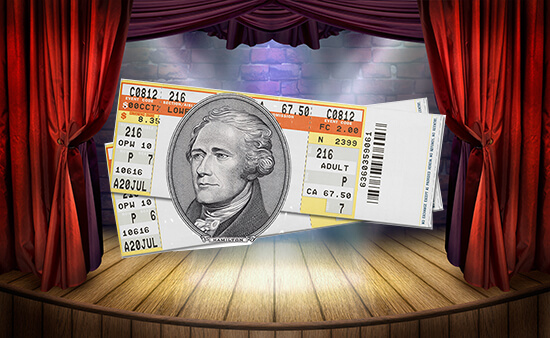
Clever marketing is the key to launching a successful product, right?
Not quite.
If you want proof, just take a stroll down West 46th Street in New York City, where “Hamilton” is playing.
This Broadway hit musical has received a Pulitzer Prize, a Grammy, and 11 Tony Awards, including Best Musical.
Prices for the premium seats now sell for $849—that is, if you can get them.
“Hamilton” has reinvigorated Broadway, in spite of the fact that it lacks many ingredients one would expect in a smash hit—no big stars in the cast, no special effects, and almost no white actors, which is a big deal in the historically white world of theater.
Started when creator Lin-Manuel Miranda was singing a number (from what would eventually become “Hamilton”) as part of a night of poetry and music at the White House, it grew into the full-fledged production.
From its historical accuracy to its diversity and musical language, word of “Hamilton” spread socially like wildfire, with everyone from grade-school kids to A-list celebrities raving about it.
Consequently, during a time when Broadway’s ticket sales have been low, this one production is still making a lasting impression on audiences worldwide—unlike the majority of the 72 other shows that opened last season and have already shuttered.
Here are four marketing lessons you can take from the widely popular show.
Quality Matters
Many marketers believe they have the power to compensate for mediocrity, thinking their efforts will be able to overcome an inherently poor service or product.
That is rarely true.
A marketing campaign is much more likely to be successful if you start with a high-quality product, take the time to gather feedback, and focus on solving problems.
As they say, marketing is sometimes the price paid for having an inferior product.
The producers of “Hamilton” responded to negative publicity regarding its high ticket prices by raffling off free tickets and upgrading seats for those waiting in line.
They positioned their product (the show) for success by actively putting the customers’ needs first.
When thinking about marketing lessons, you can take away that you need to get more involved in making sure the product is creating real value for consumers.
Have quality oversight, test, and get feedback before you launch, and be prepared to react to immediate feedback
Don’t be afraid to adjust in real time.
Be Relevant and Inspire
Though “Hamilton” takes place in 1776, it’s totally in step with the times, addressing contemporary issues, such as immigration.
A line from the show, “Immigrants, we get the job done,” received such vigorous applause that the producers had to incorporate an extended pause in the play to allow time for the ovation to end.
When your message is relevant and authentic, it will inspire people.
Put your ear to the ground and engage on social media channels to get a sense of what your audience is thinking and feeling.
It may not necessarily lead to a fundamental change, but it could certainly inspire a fresh idea.
Don’t be afraid to try new things.
On the surface, a hip-hop-inspired recounting of the life of Alexander Hamilton seems outlandish.
However, it not only works, it’s also wildly popular—precisely because the message is so authentic and inspiring.
Here’s a crazy idea when it comes to marketing lessons: Pretend you have no marketing budget.
If you behave as if you have no money to tell people how great your product or service is, and you instead invest that time and money into actually making it great, you might be blown away by your results.
In business, as in literature or theater, it is always better to show than to tell.
Marketing Lessons Require a Great Story
We all love stories about the underdog and ordinary people achieving extraordinary results.
“Hamilton” fits that bill by chronicling how a future Founding Father first arrived on American soil as an immigrant from the British West Indies, and eventually became the chief staff aide to General George Washington.
When you think about the marketing lessons required for telling a great story, share the challenges your product faced in getting to market.
Your audience will reward you with their attention.
Pull, Don’t Push—Set Realistic Expectations
It’s never a good idea to go overboard in telling consumers how amazing something is when it isn’t.
That only disappoints them.
It’s better to manage expectations and be realistic about them.
People with no or low expectations are delighted more easily.
“Hamilton” producers didn’t do much marketing leading up to the show’s debut, nor after it was a hit.
They let the people decide for themselves whether they liked it. And the results speak for themselves.
Less than a year after it opened, “Hamilton” songs had been played on music streaming devices 365 million times.
Investors put up $12.5 million to finance the show, and now it’s pulling in close to $2 million per week.
Market the strength of your product or service in a realistic, humble way.
Tell people about it, but don’t tell them they’ll love it—let them figure that out for themselves.
On rare occasions, a great marketing campaign might be able to rescue an inferior product, but the real power of marketing lies in amplifying the appeal of a great product to guarantee a hit.
image credit: shutterstock